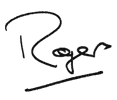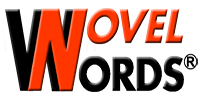FAQs For Novel Words
- What is Novel Words?
- Why do I need it?
- How many books are included and which ones?
- How often are updates produced?
- Why only literary fiction? Why not popular fiction also?
- How do you find the words for the Novel Words database?
- How many novels in the database?
- Is there a list of the titles of all novels to be included in Novel Words?
- How did you get the idea of developing Novel Words?
- For whom is Novel Words?
- Are there any in-app purchases or adverts in Novel Words?
- How do I know Novel Words has all the words that challenge me?
- Will my understanding of a novel improve by using Novel Words?
- What about foreign words that need translation? How does Novel Words handle them?
ANSWERS:
- Novel Words is a unique app which contains a database of words of the following types: archaic; arcane; rare; obsolete; slang; dialectical; and foreign, (that is, non-English). These types of challenging words occur most often in English language literary fiction.
- Finding definitions for many such words can be difficult. Not all dictionaries contain the more obscure words; which sometimes necessitates searching other sources e.g. annotated compendiums, academic notes, and so on.
- Currently, there are fifteen book titles which you can read about at this link.
- Various updates (e.g. for software, word corrections, cosmetic changes or additions etc.) can occur at any time. Book titles and associated challenging words, though, are added at regular intervals, but at least twice each year.
- Mainstream popular fiction necessarily uses easily understood words, ninety-nine per cent of which you will find in any good dictionary or dictionary app. Hence, there is no need for Novel Words to include them.
- The words for Novel Words are noted and entered into the database as I read and research each novel, in succession. Generally, the longer the novel, the longer the list of words for the database. There are, however, exceptions, as you will discover.
- At launch, there were ten novels (see link in 3, above). Additional novels will be added at defined stages. However, I have no set upper limit; I will simply continue for as long as I am physically capable of reading and researching English language literary fiction.
- Well, you can find out novel titles shortly before the next batch in succession is added and the update is available to download; an appropriate announcement will be made on the novel list page. A full list of selected titles is not available mainly because there are only a specific number of titles that qualify for inclusion in Novel Words. A search on the internet (e.g. in classic literary fiction) will provide quite a few lists of English language, literary fiction titles for you to peruse. Among those, you'll find all of the titles that could be added over time. That said, there are some novels that are unlikley to be included for various reasons - a major one being simply the matter of time.
- When reading any book, fiction or fact, it's been my habit for forty-plus years, to note in the margin the meaning of any word which challenges me as I read. Hence, over those years of reading, I'd annotated many books - fiction and fact - in my personal library. In 2010, I finally began reading Ulysses by James Joyce; a year later, I had over eight hundred annotations. A few years later, I discovered paperback novels with annotated notes included at the end (only few publishers provide such notes). Hence, recalling my long hours to find meanings for words in Ulysses, and being familiar with the power and ubiquity of smartphones and apps, it occurred to me that an app with a database of challenging words would provide longtime benefit for all readers of literary fiction.
- Principally and globally, the app is for all native-English-speaking students at high school and university who are studying English literary fiction. However, any reader or student of the English language, in any country, would benefit from having Novel Words at the finger tips, when reading the novels researched for this app.
- Neither. The app is totally free of in-app enticements to buy anything. And there is no advertising from any source.
- Good question. Considering my close reading and research of every novel in the app, I'm confident the database contains the vast majority of words which challenge most readers. Obviously, words that do not fall into any of the listed categories (see 1 above) are not included, even though some might challenge various readers (note also, 5 above). However, there is always the possibility that some valid words have been overlooked. In which case, send your query through any one of facilities on this site or in the app, where it will be considered for an update.
- Another good question. The short answer is yes: different meanings for homonyms can be confusing; specialized terms do require clarification; dialectical, foreign and ancient words must be explained. But full understanding - of an author's message, theme, philosophical perspectives, narrative nuances and allusions, symbolism, metaphors and so on - goes much deeper than mere words. To achieve that (e.g. with a novel such as Ulysses) requires some form of structured study, or using an annotated compendium for the whole narrative; or both.
- Single words, short sentences and some phrases are no problem: academic notes for most novels, personal knowledge of a language, plus my offline foreign dictionaries and free online translation services suffice. Size limitations of the MS Access database, though, cannot accommodate translation of long texts.
Roger J. Burke.
Twitter: @mayapan1942
Mixed Mentations
Some Passing Thoughts:
Get the free download of my complete chiastic thoughts in Volume 1, Volume 2 and Volume 3.
Words sounding the same....
Confused by words that sound the same? Almost everybody I've encountered is, sometimes.
They're called homonyms and homophones. And I've maintained a dictionary of them for fifteen years. Click here for more....
Heard about chiasmus?
It's a commonly used language tool. Most people have used it, including you. It's been used continuously for millennia by many of the greatest minds in history.
Join the fun here to see how it works....
Here's the novel app about challenging words used in literary fiction:
It's the app that takes the tedium out of the medium!
Want to go to Papua-New Guinea?
Well ... let me take you there with my non-fiction narrative (aka memoir) about the last years of Australia's colonial life in the 1960s. And where I was a Cadet Patrol Officer from 1961 to 1964.
Read more about it and choose a fully illustrated paperback here or choose the ebook here.
Everybody has an opinion!
Over many years, I've written on a large variety of topics, all of which are here for you to read.
You can browse through the titles here, including one describing in detail how I cured arthritis in my hands. And how, amazingly and inadvertently, the end of a rainbow found me and my wife. I kid you not!
Most people like to see movies....
And I like writing reviews. I've been doing that for years at IMDB.COM. You can read, at IMDB, a few from my entire portfolio here. Or, you can sample a larger selection right here.
Is Terminator coming soon?
The short answer is no. Should you be afraid? Not yet....
For more information, news and articles on that touchy topic, you can read through my roboticswatch blog here at Wordpress.
Novel ideas and stories....
I completed a contemporary thriller, under a pseudonym of Cyrus H. Milton, ten years ago titled Loose Cannon. You can find out more here and get a free copy (PDF) of the original edition.
Here's the short of it.
Short stories are fun to write for many reasons. You can browse all the titles for my shorts here and read them all if you wish.
Note: occasionally, there is foul and profane language and explicit sex in a couple of stories.



